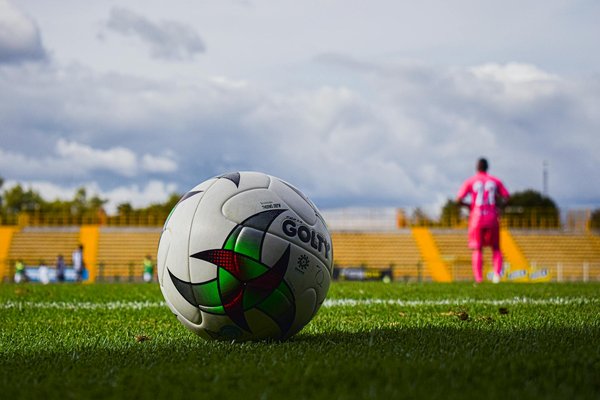In the dynamic world of combat sports, fighters continually strive for excellence, honing their skills to outmatch their opponent. Be it boxing or MMA (Mixed Martial Arts), the journey to becoming a formidable fighter is paved with dedication, discipline, and rigorous training sessions. However, even the most committed athletes can fall prey to certain mistakes during their training. These missteps not only hinder progress but can also jeopardize the effectiveness of a fight. This article explores some of the most prevalent errors fighters make and how they can be avoided to maximize the potential of each training session.
Neglecting Fundamentals: The Power of the Jab
It’s easy to get swept up in the allure of flashy moves, but neglecting the fundamentals can be a critical mistake. The jab is one such elemental move that holds tremendous power when executed correctly. Often underestimated, the jab is a strategic weapon that can set the rhythm of a fight, disrupt an opponent‘s timing, and create opportunities for more powerful punches.
Many fighters focus on mastering complex techniques, overlooking the value of a well-timed jab. This oversight can be detrimental, as the jab is a versatile tool that serves as both a defensive and offensive weapon. It keeps the opponent at bay, can be used to gauge distance, and is integral in setting up combinations.
By consistently refining their jab, fighters can control the tempo of a fight, forcing their opponent to react and potentially make mistakes. It’s crucial to incorporate jab drills into every training session, ensuring that technique, speed, and precision are continually improved. Remember, a sharp jab can be the difference between controlling a fight and being controlled.
Overlooking Strength and Conditioning
In the pursuit of technical prowess, fighters sometimes underestimate the importance of strength and conditioning. While skill is paramount, physical fitness provides the foundation upon which techniques are executed effectively. A lack of fitness can lead to fatigue, poor performance, and increased vulnerability during a fight.
Strength training enhances a fighter’s power, speed, and explosiveness. It enables them to deliver powerful punches and absorb impacts from their opponent. An effective strength routine should be well-rounded, targeting various muscle groups to ensure balance and prevent injuries.
Conditioning, on the other hand, focuses on endurance and cardiovascular health. A well-conditioned fighter can maintain high intensity for extended periods, crucial in both boxing and MMA where endurance can decide the outcome. Neglecting conditioning leads to early fatigue, reducing a fighter’s ability to capitalize on their opponent‘s mistakes.
Integrating strength and conditioning into regular training is non-negotiable. Tailored workouts that align with the demands of the specific combat sport are essential for developing a resilient and formidable fighter.
Ignoring the Mental Game
The mental aspect of martial arts is as critical as the physical. Many fighters make the mistake of focusing solely on physical training, underestimating the power of mental preparedness. Confidence, focus, and strategic thinking are elements that can significantly influence the outcome of a fight.
A common mistake is entering the ring with a cluttered mind, distracted by external pressures or the fear of making mistakes. This lack of mental clarity can lead to poor decision-making and hesitancy in the heat of battle. Conversely, a fighter with a strong mental game remains calm, composed, and can adapt strategies in real-time.
To fortify their mental game, fighters should engage in visualization techniques, meditation, and psychological conditioning as part of their training. These practices enhance focus, build resilience, and help manage stress effectively.
By bolstering their mental strength, fighters not only improve their performance but also gain the psychological edge needed to outsmart their opponent and capitalize on any mistakes made during the fight.
Underestimating Recovery and Injury Prevention
In the relentless pursuit of improvement, fighters sometimes push their bodies to the brink, overlooking the critical role of rest and recovery. This mistake can lead to overtraining, increased risk of injuries, and ultimately, a decline in performance.
Recovery is more than just taking a day off; it’s an essential component of a fighter’s training regimen. Proper rest allows the body to repair, adapt, and grow stronger. Without adequate recovery, fighters may find themselves in a cycle of exhaustion, unable to perform at their peak.
Injury prevention must also be prioritized. Many fighters neglect proper warm-ups, cooldowns, and flexibility exercises, which are crucial in maintaining a healthy body. Ignoring these can result in injuries that sideline a fighter, hindering their progress and momentum.
By incorporating structured recovery periods and injury prevention protocols, fighters can ensure longevity in their careers. Techniques such as massage, stretching, and ice baths can assist in speeding up recovery, while a focus on proper technique can minimize the risk of injury.
In sum, rest and recovery are not signs of weakness but rather smart training strategies that empower fighters to push their limits effectively. Fighters are continually seeking ways to elevate their skills and outmaneuver their opponents. However, success in the ring requires more than just skill; it demands a comprehensive approach to training that mitigates common mistakes. By embracing the fundamentals, prioritizing strength and conditioning, sharpening their mental game, and valuing recovery, fighters can make the most of their training sessions.
The road to mastery involves understanding that every jab, every moment of mental focus, and every recovery period plays a vital role in crafting a superior fighter. Awareness of these mistakes and taking steps towards correction not only enhances the quality of training but also ensures preparedness for any fight that lies ahead.
Training is a journey, and by avoiding these pitfalls, fighters can navigate it with increased confidence and capability, paving the way for success in the ring.
